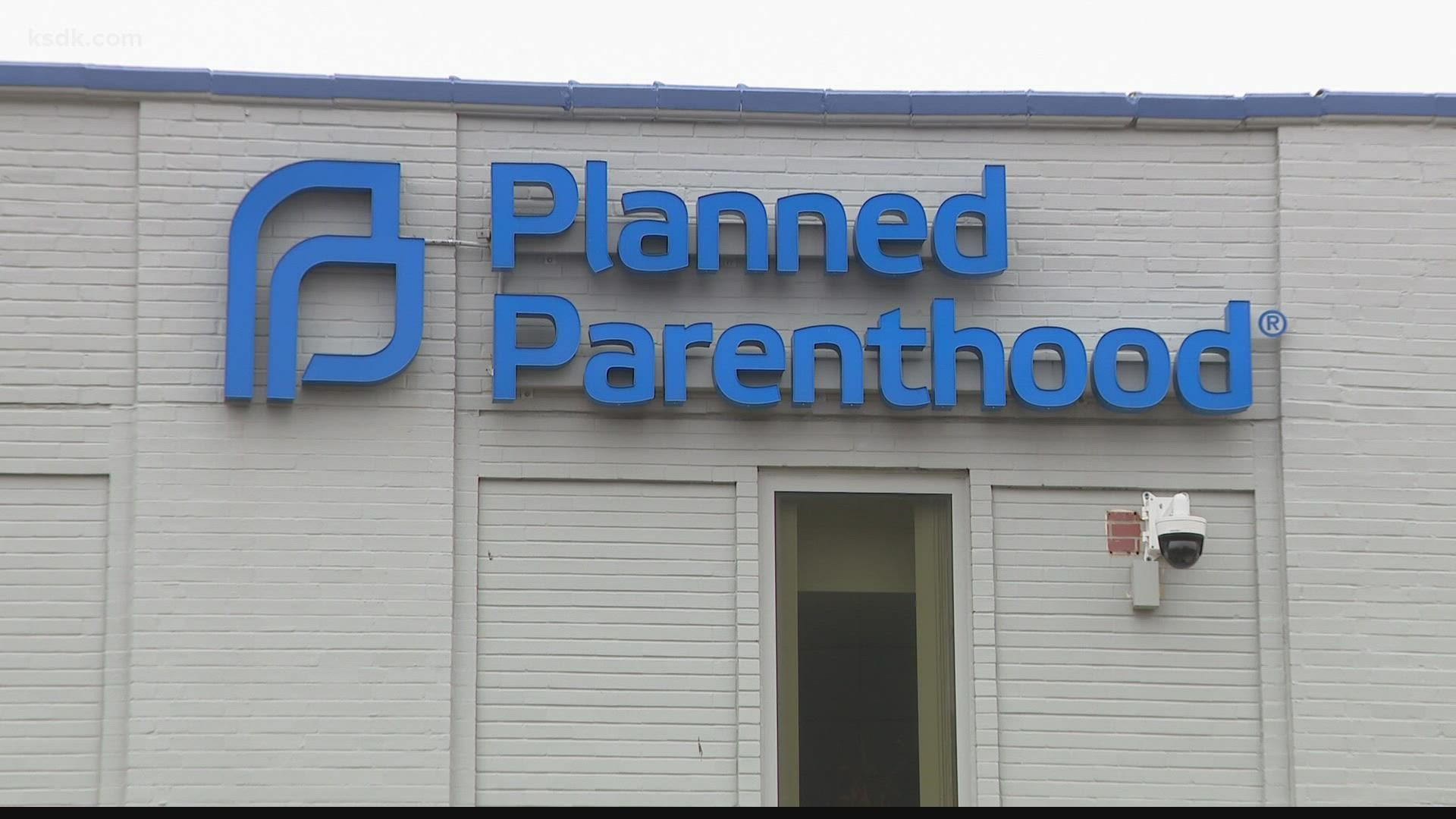ST. LOUIS — Stepping up to a podium at the front door of Planned Parenthood in St. Louis, Rev. Dr. Love Holt detailed her own experience with abortion, explaining "we are destigmatizing abortions by telling our stories."
Standing outside Missouri's only remaining abortion clinic, Maggie Olivia said she received "disinformation and biased counseling" before she was "forced to cross state lines in order to seek my abortion."
Both women now work on behalf of Pro-Choice Missouri, advocating for the continuation of abortion access.
"We both know that we are lucky that we were not turned away from abortion services like so many other people who do not want to get pregnant," Holt said.
City and county leaders are prioritizing local resolutions to support reproductive rights. St. Louis Board of Alderman unanimously passed a resolution to support reproductive rights last week, with the county council expected to take similar action Tuesday night.
"This is unacceptable. We are now looking at 69% of the electorate saying 'leave Roe alone,'" Chairwoman Rita Heard Days said.
But if the Supreme Court overturns Roe v Wade, both sides said it would trigger a ban in Missouri.
"We worked very hard to make that happen, and we hope that that does happen," Missouri Right to Life President Steve Rupp said. "That would overrule any other local law."
Rupp said he and his group have stood at the edge of Planned Parenthood property to pray, but now -- thanks to this supreme court hearing -- they have more attention than ever before.
"We hope and pray that by having this conversation, by abortion being in the news every day — which it is now more than it has been in many many years — people are doing their homework. And we are hearing from people that are saying 'I didn’t know what abortion was,'" Rupp said.
Rupp acknowledges any Roe reversal would not stop the debate over abortion access
"Some women are going to go across state lines. We want to reach them to educate them," he said, adding they hoped to continue to change hearts.
Planned Parenthood leaders estimate a restrictive Supreme Court decision could send about 14,000 people from several neighboring states to their Fairview Heights, Illinois clinic.
A decision is not expected from the Court until the summer of next year.

